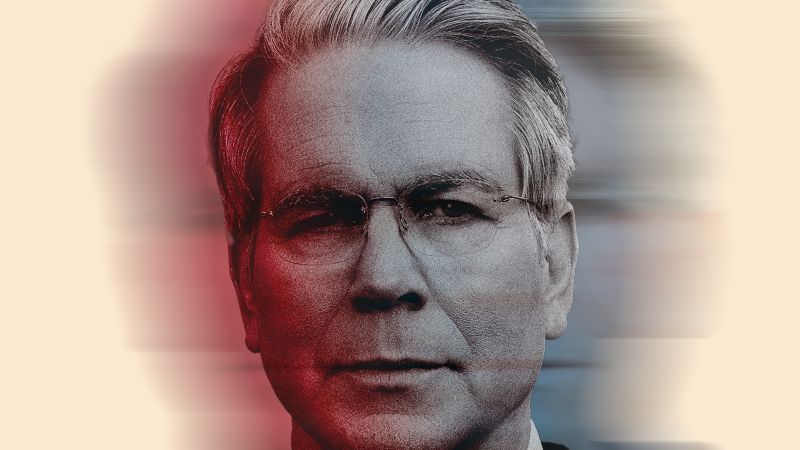In recent months, Scott Bessent has emerged as a pivotal figure in U.S. economic policy under President Donald Trump, especially following his significant achievements in trade negotiations. During a news conference held in Doha, Qatar, Trump notably highlighted Bessent, the Treasury Secretary, for his instrumental role in advancing the administration’s economic agenda, particularly in mitigating the ongoing trade tensions between the United States and China. Bessent’s ability to forge a path toward a temporary halt in the escalating trade war has garnered attention and praise both domestically and internationally.
Bessent’s journey to becoming a crucial member of the Trump administration is remarkable. After recently flying from trade talks in Geneva, he joined Trump on his major foreign trip, which included stops in Saudi Arabia and culminated in an atmosphere of soaring stock markets. Trump, visibly enthusiastic, characterized Bessent as someone whose words carry significant weight in financial markets, reiterating, “When he speaks, the markets really listen.” Despite Trump’s boisterous praise, Bessent maintained a more reserved demeanor, opting for measured responses emphasizing negotiation processes and mechanisms with Chinese officials.
In the dynamic landscape of global economics, Bessent stands out as one of the most influential economic officials of our time. He serves not only as Trump’s chief negotiator with China but also plays a vital role in discussions with numerous countries focusing on bilateral trade agreements. Amid the backdrop of a contentious political climate where his relationship with trade allies can often be fraught, Bessent is tasked with multifaceted responsibilities, including managing Trump’s ambitious tax and spending package, all while striving to uphold the U.S.’s position as a linchpin in the global financial framework.
Conversations with various stakeholders—administration figures, lawmakers, executives, and diplomats—underline that Bessent has recently become an essential figure during a particularly volatile economic climate. As one European diplomat succinctly put it, “We’re all putting a lot of faith in the secretary because he’s earned it.” This faith, however, is intertwined with the recognition that not everyone is confident that Bessent’s leadership is inherently superior; some attribute it to the chaotic alternatives that exist.
Bessent’s ascent in Trump’s councils embodies a complex saga of power dynamics that have unfolded within the administration. His navigation through internal conflicts, including a fierce contest for the Treasury Secretary post against longtime Trump backer Howard Lutnick, underlines his resolve and capability. Despite having no formal government experience, Bessent’s background as a hedge fund manager with ties to prominent figures like Steve Bannon—with whom he shares mutual support—has positioned him as a bridge between Wall Street and the Trump administration, earning him roles that put him at the heart of critical negotiations.
Despite facing skepticism stemming from his previous affiliations, including aligning with Democratic causes and a public persona as a supporter of LGBTQ rights, Bessent’s role has quickly evolved into one of reconciliation. Amid a backdrop of tension that typically defines the intersection of finance and politics, his ability to convey strategic economic policies that are not merely reactionary but interlinked within a broader framework is paramount. In recent discussions, he has stressed that the economic agenda under Trump is not merely a sum of trade and tax decisions but a cohesive plan designed to stimulate long-term investment in the American economy.
Critically, the clarity and execution of this economic strategy will determine the trajectory of the Trump administration as it confronts challenges manifested through market volatility. Bessent’s focus on economic policies reflective of the interdependence of trade tariffs and tax incentives is a delicate balancing act. Despite the considerable influence he may wield, questions remain regarding the ultimate implications of these strategies on the consumer economy and the potential for a looming recession.
In interactions with high-profile investors during events like the Milken Institute Global Conference, Bessent has had to articulate these complex interrelations. By doing so, he seeks to mitigate doubts regarding the administration’s economic intentions while reassuring that their agenda encompasses coherence amid apparent discord. Ultimately, Scott Bessent represents a watershed moment in how financial markets and political machinations intertwine, underscoring the critical role thoughtful economic dialogue plays in shaping national policy framework. His experiences, alliances, and the uniquely positioned trust he has garnered hint at a future where the balance of economic power and effective policymaking may hinge on his contributions within the Trump administration.



